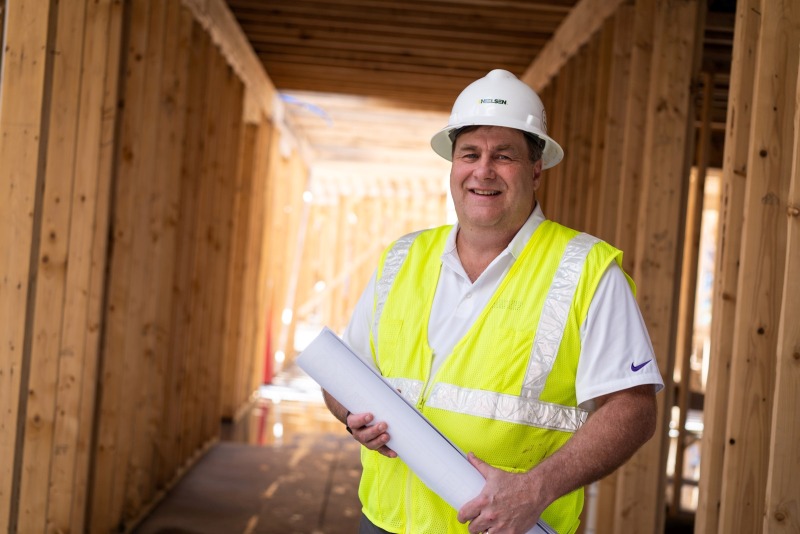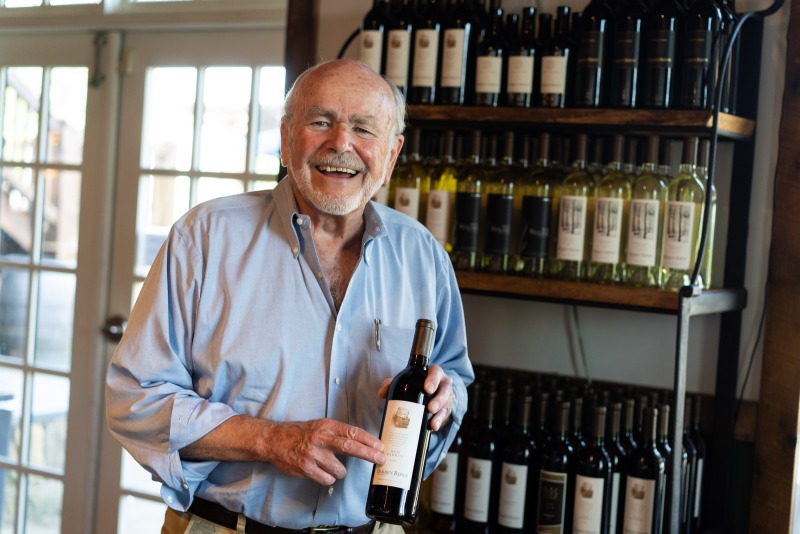Jonathan Reimer
Senior Vice President & Commercial Relationship Manager
Let’s Get to Know You:
Question: What do you like best about the local community you serve?
Winchester is extremely welcoming to new families and residents. We have really enjoyed living, working, and raising our family here. It’s also a fast-growing region that boasts strong national and regional employers, world class non-profits, and a robust network of small businesses.
Question: What impact do you hope to make on the local community?
I hope to continue to serve my customers with expert banking knowledge around credit structures, cash flow management, expense reduction, and growth plans. By helping to bring F&M Bank to Winchester, I look forward to delivering Banking You Love From People Who Care!
Question: Where are you from, and what’s brought you to where you live/work now?
I grew up in New Holland, Lancaster County, Pennsylvania. After attending college, I spent some time in North Carolina and Northern Virginia. After my wife and I had several kids, we felt the pull to move out to the country. We relocated to Winchester and have very much enjoyed the community here. We now have 4 kids, Levi (7), Naomi (5), Joanna (3) and Victoria (8 months).
Question: What are your hobbies and/or where do you volunteer?
I enjoy volunteering at Habitat for Humanity, the Shenandoah Valley Discovery Museum, and at our Rotary events. I’m also what you call an AFOL (pronounced “a-foal” – Adult Fan of LEGO).
Question: How long have you been working in the commercial real estate and lending industry?
I have been in commercial banking for 10 years. I started as a credit analyst, then small business lender, and most recently a commercial relationship manager serving all customer industries.
Question: How has commercial real estate changed over that time?
The commercial real estate world has not changed too much. Investors are still seeking strong returns and are willing to take speculative risks. Banks and lenders vary in their risk appetite, generally the larger banks are more conservative and restrictive in loan structuring while the smaller community banks can respond faster with more flexibility.
Why F&M Bank?
Question: What do you enjoy most about being a lender for F&M?
F&M Bank has a long tradition of intimately understanding its customers and their businesses. This merges nicely with my banking career and my team’s approach to serving our clients. The first step for any bank/customer relationship is a deep knowledge of how the customers succeed, what challenges they face, and how banking products and services can facilitate realization of their strategic goals.
Question: What is the advantage of using F&M’s commercial lending services versus another local community bank?
Especially in the Winchester market, we have a long track record of serving this community. Additionally, our loan officers understand commercial underwriting which prevents delays in loan structuring conversations that can cost time, money, and create lost opportunities. F&M Bank has an executive management team that has deep knowledge of business operations, commercial real estate markets, agricultural lending programs, and the importance of timely, honest communication. Customers and borrowers need a fast and clear response from their local bank. F&M Bank and the Winchester team will deliver that clarity.
Question: Are there specific commercial lending services that F&M Bank offers that other local community banks do not? What are they?
F&M Bank has specific strengths in the agricultural industry including FSA loan programs. Additionally, dealer services is a focus with product offerings for auto dealers and buyers. Lending to operating companies in all industries and commercial real estate projects are also specialties of the bank.
Question: Why should a local business choose F&M’s commercial lending services over a larger national bank?
Larger national banks have made strategic decisions to shift their focus up market. This means the minimum desirable loan sizes have increased dramatically and the target customer size has also grown. The result is a lack of local presence in smaller, more rural communities and an evident drop in the service quality to small businesses. Local business owners need a local banker that understands their needs and can respond quickly to requests.
Share Your Expertise:
Question: On a local level, what should business owners and entrepreneurs know about your market?
The Winchester/Northern Shenandoah Valley region is known for its strong employer base, low unemployment, and dynamic retail options. The commercial real estate market is growing rapidly with new construction and development downtown and in the industrial areas in surrounding Frederick County. The national and regional employer base is growing with new operations built by Navy Federal, the FBI, and Amazon to just name a few.
Question: What economic trends are you watching or anticipating in the year ahead related to commercial lending?
The end of the pandemic is expected to unleash substantial pent-up demand in all sectors such as retail, travel, and entertainment. While the date and nature of that end is very uncertain, the recent enthusiasm in the stock market and extended fiscal stimulus by the government are indicators of optimism that the vaccine rollout will be successful and restore the economy to steady growth in the near term.
Question: What advice would you offer new business owners who are interested in obtaining or learning more about commercial lending?
First, consult your local resources such as a business development center through the community colleges or regional chambers of commerce. Then, attend classes or training sessions on business plan writing, accounting, and entrepreneurship. Third, form a trusted circle of advisors in multiple industries, for example: legal, marketing, banking, and accounting to name a few. Finally, seek out a meeting with commercial lenders to discuss financing structures and options, required cash injections and collateral, and available state and federal programs such as the Small Business Administration.




